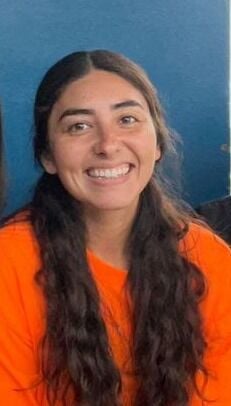The Guam Department of Agriculture is preparing for its upcoming Field to Fork Babui Hunt on Saturday, an event that goes far beyond a simple hunting competition. This innovative initiative aims to address multiple challenges facing Guam, from invasive species management to food security and community engagement, the department announced in a press release.
The hunt, part of the R3 program focusing on Recruitment, Retention and Reactivation of hunters, will challenge participants to compete in firearm and archery divisions, with categories for heaviest pig and most pigs, the department said in the release.
However, the event's significance extends well beyond competitive hunting, said Megan Volsteadt, a biologist with Guam Agriculture who has taken on an important role in organizing the hunt and spoke with The Guam Daily Post.
"We host this event with the hope that we will get people interested in hunting," said Volsteadt. "So, they want to come out and try it and go with people they know. And it also leads to them taking our basic hunter education safety course, and they can get certified."
The feral pig problem on Guam is significant and rapidly escalating, Volsteadt said, speaking about the alarming reproductive capabilities of these invasive animals. "In the tropics, we don’t have a winter, so pigs can reproduce all year round," she said. "One female pig could have three or four litters in a year, and each of those litters could have anywhere from six to a dozen piglets that are ready to go and can reproduce in the next year."
These feral pigs pose substantial threats to Guam's ecosystem and agriculture, she said. They destroy crops indiscriminately, often taking a single bite from multiple plants and ruining entire agricultural yields. Moreover, their destructive rooting behavior contributes to severe environmental degradation.
"When pigs dig up areas, they're creating bare land and destroying root systems," Volsteadt said. "All that loose dirt and soil eventually makes its way into the rivers and then flows out into the ocean. … All that sedimentation covers up coral reefs, and then the corals can't photosynthesize. And if it goes on for too long, they can get stressed out and die."
The hunt also addresses food security, she said, a critical concern that became particularly evident during the COVID-19 pandemic. Since 2020, the Department of Agriculture has encouraged hunters to donate their catch, allowing community members to collect pigs to help feed their families.
"We're hoping anyone who knows how to deal with a pig can come and pick one up if they want, so it's another way of providing food to the community through the efforts of our hunters," Volsteadt said. She noted the long-term vision of potentially establishing a local slaughterhouse to reduce reliance on imported food.
Safety and ethics are paramount in these hunting events, she added. Minors must be accompanied by experienced adult hunters, and conservation officers will monitor hunters throughout the day, ensuring they are distributed safely across designated grid areas. Hunters also are trained in ethical hunting practices, focusing on humane, quick kills.
The event reflects the deep cultural significance of hunting in Guam. "It's very family-centered," Volsteadt said. "If you're in a hunting family, you likely grow up learning how to hunt, clean your catch and prepare food. We want to continue this practice and ensure it doesn't die out."
Looking to the future, the Department of Agriculture is developing strategies to engage younger generations. According to Volsteadt, there are possibilities of introducing hunter education classes in high schools, allowing 14-year-olds to obtain hunting licenses and potentially participate in shooting and archery competitions.
While the hunt may not reduce the feral pig population dramatically, she said, it represents a community-driven approach to invasive species management. As Volsteadt emphasized, "It's really a community effort, and that's what we're here to do. We're here to serve the community and try to get more community members knowledgeable and involved and moving our island forward in conservation and environmental issues."
The Field to Fork Babui Hunt, funded by the Guam Hunter Education Program through a U.S. Fish and Wildlife Service grant, demonstrates an innovative approach to conservation, food security and community engagement, the Guam Department of Agriculture said in the release.
Registration forms will be available at the Guam Department of Agriculture Division of Aquatic and Wildlife Resources office. Participants must bring current identification, including a current firearms ID if hunting with a firearm. Minors need parental or legal guardian accompaniment during the hunt.
For more information, call 671-735-0294/95 or email megan.volsteadt@doag.guam.gov.







